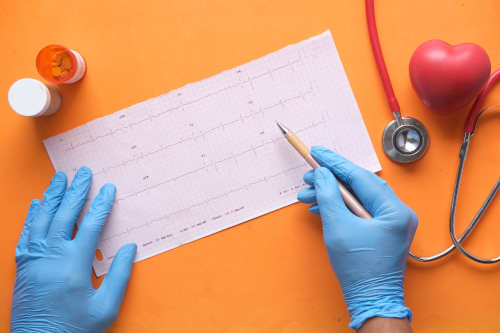
Photo by Towfiqu barbhuiya on Unsplash
By Aloha27 Dec 2022
The Battle Against Heart Failure in India: A Look at History, Prevention, Treatment, and the Expertise of Aloha Clinics
Heart failure is a global health issue that poses significant challenges to medical professionals, patients, and societies. In India, heart failure is a growing concern due to a rapidly ageing population, changing lifestyles, and the prevalence of non-communicable diseases. This article will explore the history of heart failure in India, delve into the various preventative measures, discuss available treatments, and highlight the crucial role of Aloha Clinics in cardiac health reversal.
The History of Heart Failure in India
India has long been grappling with heart failure as a major public health problem. Historically, the primary focus of cardiovascular care in the country was on rheumatic heart disease, which was the leading cause of heart failure in the mid-20th century. However, with improvements in living conditions and better access to healthcare, the prevalence of rheumatic heart disease has significantly decreased.
Over the past few decades, India has experienced a remarkable epidemiological transition. The country now faces the dual burden of communicable and non-communicable diseases, with a growing prevalence of cardiovascular risk factors, such as hypertension, diabetes, obesity, and smoking. As a result, ischemic heart disease has emerged as the leading cause of heart failure in India, with an estimated 10 million people affected.
Prevention of Heart Failure in India
Given the complex nature of heart failure and its growing prevalence, there has been a significant emphasis on prevention strategies. To tackle the problem, the Indian government has introduced several public health initiatives such as the National Programme for Prevention and Control of Cancer, Diabetes, Cardiovascular Diseases, and Stroke (NPCDCS).
Additionally, organizations such as the World Health Organization (WHO) and the Indian Council of Medical Research (ICMR) are actively involved in promoting public awareness campaigns on heart failure prevention. The campaigns highlight the significance of adopting a healthy lifestyle, which involves incorporating regular physical activity, a well-balanced diet, and quitting smoking, in addition to regular health check-ups to monitor blood pressure, blood sugar, and cholesterol levels. These measures are vital in the management of heart failure in India.
Treatment of Heart Failure in India
The treatment of heart failure in India has evolved over the years, with significant improvements in the availability of advanced diagnostics, pharmaceuticals, and surgical interventions. However, access to these treatments varies widely across the country, with urban areas benefiting from better healthcare facilities than rural regions. Despite the advancements in medical technology and the availability of evidence-based guidelines, the overall outcomes for heart failure patients in India remain suboptimal.
Key treatment strategies for heart failure include:
Pharmacological interventions: The use of medications such as angiotensin-converting enzyme (ACE) inhibitors, angiotensin receptor blockers (ARBs), beta-blockers, and diuretics to manage symptoms, improve quality of life, and prolong survival.
Cardiac resynchronization therapy (CRT): A specialized pacemaker that helps to coordinate the contractions of the heart's chambers, which can improve the heart's pumping efficiency and alleviate symptoms.
Implantable cardioverter-defibrillators (ICDs): These devices monitor the heart's rhythm and deliver electrical shocks when necessary to correct potentially life-threatening arrhythmias.
Ventricular assist devices (VADs): These mechanical pumps can support the heart's function, either as a bridge to transplantation or as a destination therapy for those ineligible for transplantation.
Heart transplantation: A last-resort treatment option for patients with advanced heart failure, when all other therapies have failed.
For an extended period, Aloha Clinics has been at the forefront of treating cardiovascular diseases and aiding patients with cardiac reconditioning to promote long-term health benefits.